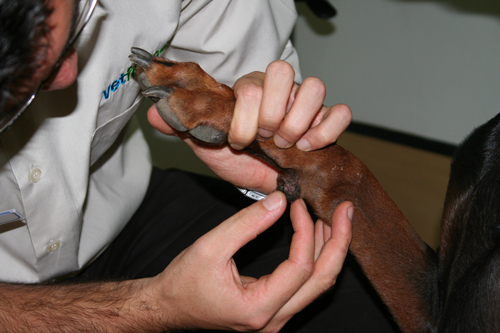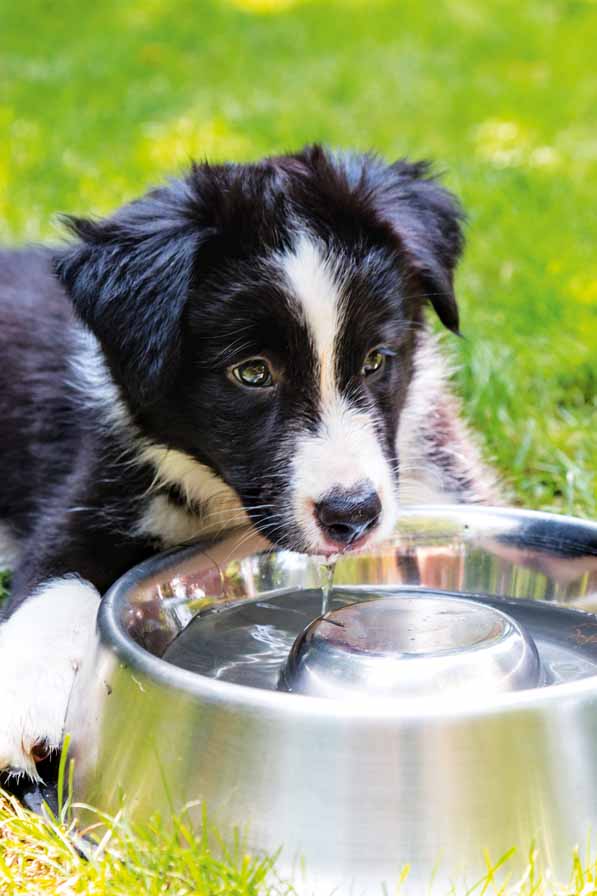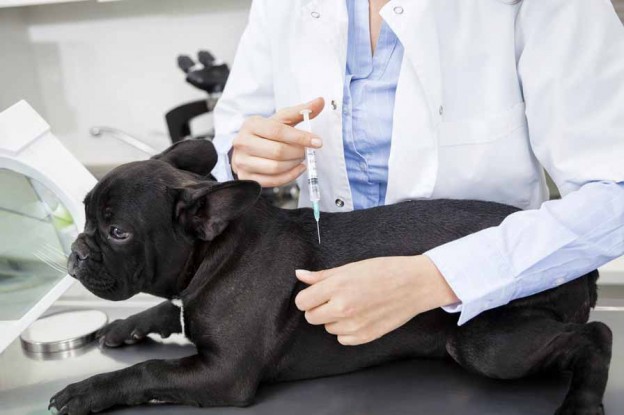
Moving home, finding a vet or just looking for the perfect veterinarian to suit your dogs increasing needs? Nadia Crighton investigates how you can find a good vet in your area without the hassle of clinic hopping.
In today’s world, our local veterinarians play an important role in our families and our pets. They are well-trusted friends who, for many of us, have been there through some heart-wrenching times. This is particularly true in times of a pets injury, chronic illness and even death, making your veterinarian one person who is not easily replaced.
So what do you do when faced with the decision to change vets? Many of us who have moved to another country, state or even suburb, will be all too familiar with this problem. Some will clinic-hop, hoping to stumble across a vet who can meet their pets needs and requirements. Others will put up with second-class care and mourn the loss of their family vet until they, too, stagger across a suitable clinic.
In light of this, Dogs Life caught up with veterinarian, Dr Angus Ross from Ku-Ring-Gai Vet Hospital, to get some advice on how to find a good veterinarian in your local area. Ross is quick to note that changing vets is sometimes not the best option, particularly if your pet is well known to the vet and the travel isnt too far.
Finding a local vet is not always the best thing, he tells Dogs Life. If the person has a good relationship with the existing vet and the travel is not too bad (for example, half an hour), then I think it is best to stay.
However, Ross points out the importance of knowing what emergency practices operate around your local area, just in case.
Discovering what you need
It is important before you go on the hunt for a new vet, to examine what you need in a clinic. Do you want alternative options? Does Rover need specialised care? These answers will be vital when choosing a new vet for your family pet.
I think people need to assess what type of care they want, whether it be no frills or a comprehensive practice, Ross suggests. Both have their ups and downs. No frills are cheaper and sometimes have a cosier feel, but the vet usually has less equipment, is often less able to help and would need to refer the case away if more complex, which can be very costly.
A no-frills option verses a comprehensive practice that has most things on site? A comprehensive practice may not quite offer the warm feel of a pure one-on-one relationship, but has the equipment and skills to deal with all situations, Ross says.
Once you have asserted what kind of practice you are looking for, you can start to compile a list of questions you would like answered. I would be asking for levels of experience, knowledge and qualification, Ross says. What level of equipment do they have and who knows how to use it? Who backs up the vet when they are not there? Ask about the level of service and opening hours.
Look around and pop into some clinics, ask lots of questions and check out the general vibe of the place. Trust your inner voice. If its screaming no way hose-ay, walk out and find another.
Visit a couple of places and ask lots of questions, Ross says. The good ones are happy to talk and are knowledgeable.
Questions! Questions! Questions!
Here is a list of good questions to ask possible new clinics:
- How long have you been practising for?
- What is the level of qualification in your practice?
- Do you refer your patients to other practices regularly, or can you handle most cases yourself?
- What level of equipment do you have on site, and who knows how to use this equipment?
- Does your clinic specialise in anything?
- Do you have specialised vets on hand?
- What are your opening and closing times?
- What happens in the event of an emergency?
- What animals do you mainly treat?
- Is your clinic open to natural treatments, which can coincide with medical treatments?
- Are any alternative therapies available at your clinic, such acupuncture etc?
- How much does it cost for a general appointment?
- Can you perform operations and after-care on site?
Moving area or going abroad
What if you are not moving to an area, or even a country, that will make your current vet easily accessible? The only option is to change, and the best way to do this is to research your new locality and the vets available.
Perhaps you will not find a local vet whom you are completely happy with, but if you decide that travelling 20 to 30 minutes won’t be a problem, your search area will be radically increased.
If moving into a completely new area, then it is best to ask around, Ross advises. Friends and training clubs are a good place to start. Just like when finding a new doctor, word-of-mouth is also the best way to find a good veterinarian.
Searching on the Internet or via the Yellow Pages is a good way to source vets in your area, however, a little more research will be required to find the right one. Ask your current vet if he/she can recommend anyone in the area you are moving to.
If moving overseas, chat to the people who transported your pet, local dog owners at the dog park/beach (its always best to talk with more than one owner), dog-training clubs in your area and other dog-affiliated organisations, such as the RSPCA.
It is vitally important that your pets records go with you. Keep in contact with your vet, so that when a suitable replacement has been found they can send your details over.
The pets records should go with them or be sent over from previous vet, Ross recommends. This is easily done from one vet to another, and is very important, as your newly found veterinarian will need all past information to make sure they give the best advice on your pets general health and wellbeing.
It is also important to remember that finding a new vet is not easy and that it will take time. You may not hit it off first time, particularly if you are used to your previous vet and have very high expectations.
It always takes time to get a feel for a new vet, Ross says. Give it a few goes, and if you are not happy, ask to see another vet in the practice to see if that feels better.
Ross also warns against clinic hopping in the hopes of finding the perfect vet for Rover. Wandering from practice to practice is less effective than seeing a different vet inside the same practice if you are unhappy, he says.
Also, remember that your previous vet is usually only a phone call or, in some cases, an email away. Dropping them a line once in a while to ask for advice is a great way to keep in touch and help you make the right choices for your pets. Having that additional voice telling you, It sounds like the best option is always welcoming, especially if you are living in a new country and aren’t sure of the advice you are receiving about your pet.
It often helps to keep in contact with a previous vet for advice, Ross says. We get calls from all over Australia and overseas, asking about cases and what our opinion is. New relationships take time, but ultimately you have to develop trust in who is looking after your pet.
With a little research, care and time, you can find a new vet that everyone is happy with. Remember, just as with your own doctor, finding a suitable replacement is not an easy task. Finding the right vet to suit you and your dogs needs may take a little time, but good care can never be underestimated, particularly with such a cherished member of the family.







